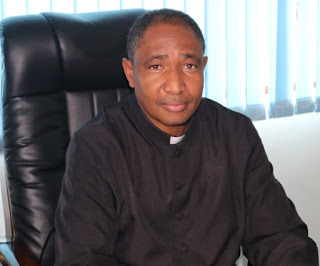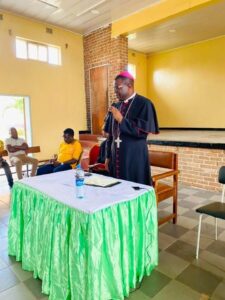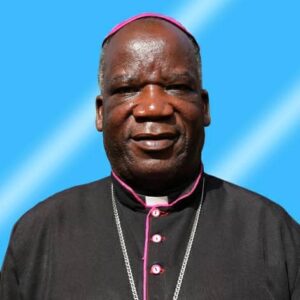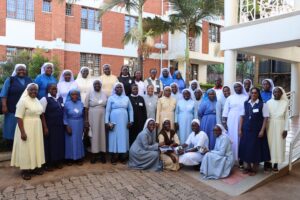AMECEA: Lay Charisms Urged to Enhance Collaboration, Focus on Same Mission for the Growth of the Church: AMECEA Secretary General

Rev. Fr. Anthony Makunde, AMECEA Secretary General & IYCS Chaplain
Sr. Jecinter Antoinette Okoth, FSSA
During the webinar session aimed to explore how to strengthen the role of lay charisms in the Church’s mission, the Secretary General of the Association of Member Episcopal Conferences in Eastern Africa (AMECEA) region emphasized an increased collaboration of the various lay associations and ecclesial movements to bear lasting fruits in the Church.
Addressing over 100 online participants Thursday, July 11, Fr. Anthony Makunde pointed out that collaboration of these charisms with one another and with other faithful in all levels of the church right from Small Christian Communities (SCCs), to Parishes, and Dioceses is essential for “the benefit of the entire church.”
Stressing the significance of collaboration, Fr. Makunde underscored that since the lay associations and ecclesial movements are so many in the Church they provide the needed inspiration and creative forms of spiritual living hence working together with dioceses is key.
He quoted Pope Francis who said, “These groups should maintain a strong connection with the local parish and participate in the overall pastoral activities of the local church to avoid becoming isolated or overly focused on specific aspects of the Gospel or the church.”
In line with the teachings of the Church, the lay charisms are “raised by the Spirit for evangelizing different areas and sectors,” the Tanzanian cleric said and continued in reference to Pope Francis’ Apostolic Exhortation Evangelii Gaudium 29, these groups “bring a new evangelizing fervor and a new capacity for dialogue with the world whereby the Church is renewed.”
He clarified that the Lay associations and ecclesial movements “Should not replace the role of the laity in the church but rather should offer a particular forum for some who feel united in living and manifesting their faith in a particular spirituality and engagement.”
In this case he narrated, the lay Charisms have a special role in the work of evangelization, renewal of faith, and deeper Christian life among others.
The AMECEA’s Secretary General identified some gaps the Church experiences with the lay Charisms that need to be addressed saying, there is “Little understanding of the role and place of lay associations and ecclesial movements in the mission of the church while some tend to isolate themselves from the entire church community.”
This should not be the case since “these groups have a foundation in baptism and are grounded in baptismal dignity,” Fr. Makunde disclosed.
He highlighted further that there is a lack of pastoral and spiritual accompaniment, some tend to glorify themselves that they are spiritually better than others and at the same time, “Others have gained a reputation for drawing members away from local parishes, especially when they insist on celebrating separate liturgies or absolutize their own spiritual experiences to the exclusion of others forms of Christian life and prayer.”
Borrowing from the Synthesis Report (SR) number 10 that was shared last year after the phase of the synod, that lay charisms are often models of synodal communion and participation in mission, due to proximity to those on the margins economically and socially and through their promotion of the common good, Fr. Makunde narrated that, “Parishes and dioceses need to support the movements in their access to the areas which are most needy particularly charism in the periphery.”


